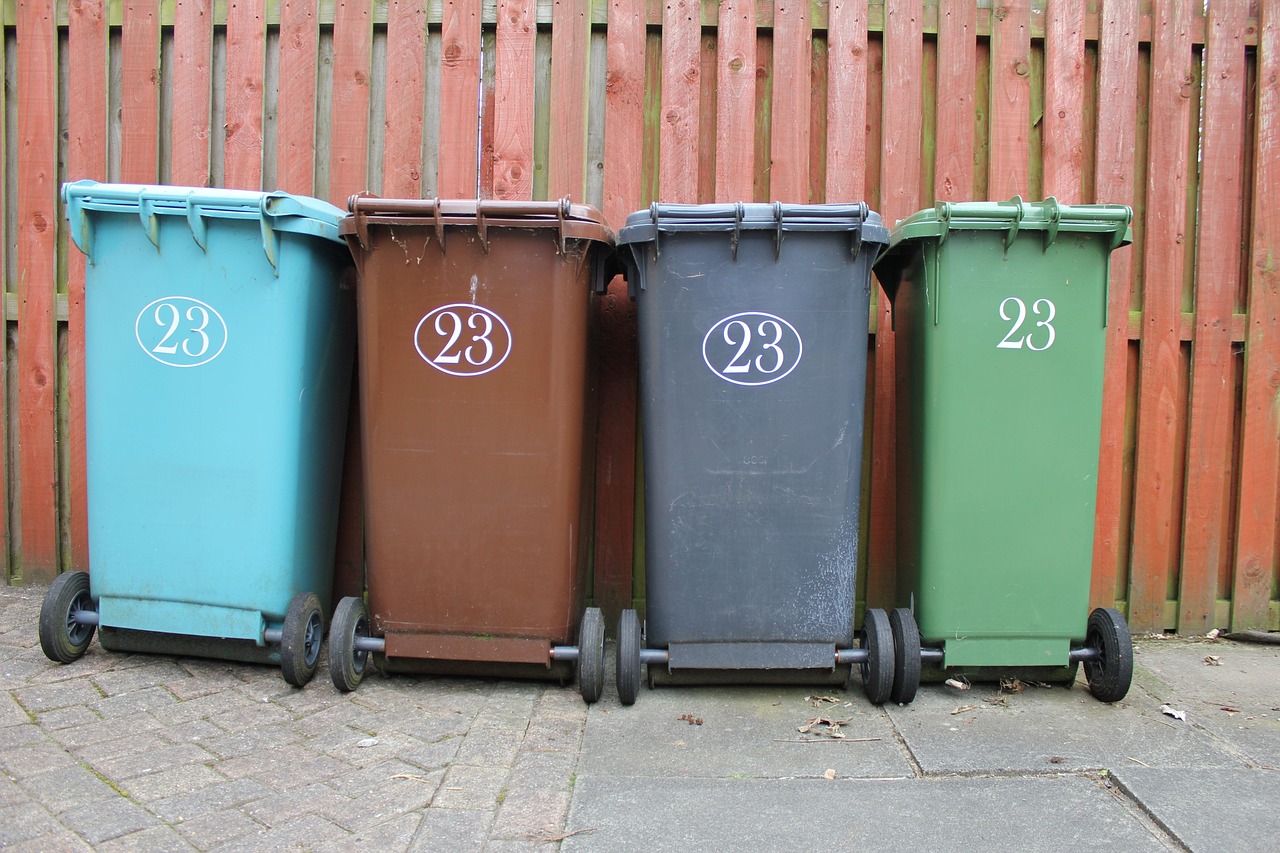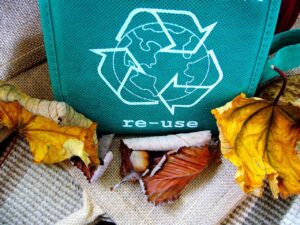Benefits of Recycling: Introduction
The phrase “Benefits of recycling” encapsulates a world of positive change and transformation. Imagine this scene: You’re at home, holding an empty plastic water bottle, contemplating its fate. This is a routine you’ve followed countless times before. But today, there’s a pause—a moment of reflection. You’ve heard whispers about the numerous benefits of recycling, and now you’re wondering: What’s the real significance? Why should you make the conscious choice to recycle?
If these questions have ever crossed your mind, you’ve arrived at a juncture where enlightenment awaits. Welcome to an exploration of the manifold advantages that recycling offers. This journey will delve into the “why” and the “how” of recycling, revealing the profound impact it has on our environment, economy, and society.
So, let’s embark on this illuminating voyage together.
Benefits of Recycling: Why Recycle?
Reducing Waste
So why should we recycle? Well, it’s simple but profound: To reduce waste. Now, you may think, “What’s the big deal? I’m just one person.” But multiply that waste by 7 billion people, and things start to get a little crowded. Every bit of trash we create has to go somewhere, usually a landfill, taking up valuable space and contributing to pollution.
The Stats: A Closer Look at Our Waste Production
Let’s put this into perspective. Did you know that, according to the EPA, the average American produces about 4.9 pounds of trash daily? That’s nearly 1800 pounds per year, equivalent to the weight of about 10 adult Labradors! Pretty shocking, right?
Conserving Natural Resources
Another compelling reason to recycle? Conserving our precious natural resources. Our planet isn’t getting any bigger, but our demand for resources keeps growing. That’s where recycling comes in.
The Impacts of Resource Extraction
Resource extraction, whether it’s mining for minerals or cutting down trees for paper, has a substantial environmental impact. It can lead to habitat destruction, soil erosion, and pollution of air and water sources. It’s like throwing a big, disruptive party in the middle of a quiet neighborhood.
Success Stories: When Recycling Makes a Difference
Recycling isn’t just theory or feel-good propaganda, it has shown measurable results in the real world. Let’s delve into some standout stories where recycling has significantly impacted communities, industries, and the environment. These tales illustrate the difference that recycling can make when implemented effectively.
First off, let’s hop over to the other side of the globe, to Japan. This country, known for its technological advancements and meticulous work ethics, has one of the highest recycling rates globally. They’ve set a powerful example of integrating recycling into everyday life. The city of Kamikatsu, in particular, has a unique story to tell. They have achieved an impressive recycling rate of over 80% by sorting waste into 45 different categories! It might seem like a lot of work, but the city’s commitment to reducing landfill waste has transformed how they live and interact with the environment.
Returning to our shores, let’s revisit the San Francisco story we touched on earlier. San Francisco’s ‘Zero Waste’ initiative is noteworthy for its ambition and execution. The city boasts an 80% recycling rate and aims for zero waste by 2030. It has implemented mandatory composting and recycling laws and has banned certain types of plastic. Through comprehensive public education campaigns, they’ve involved the community in their recycling efforts, making it a group mission rather than an individual burden.
Recycling success stories are just as vibrant from the public to the private sector. For example, tech-giant Apple runs a robust recycling program. They’ve developed a robot named Daisy that can disassemble iPhones to recover valuable materials. These materials are then reused in new products. This recycling strategy forms part of Apple’s broader commitment to become a 100% closed-loop manufacturer.
Lastly, let’s look at the community level. In Nova Scotia, Canada, recycling has dramatically transformed the province. In the 1990s, they implemented aggressive recycling policies in response to a landfill crisis. Since then, the province has cut its waste in half, created jobs in recycling industries, and reduced greenhouse gas emissions, equivalent to taking 36,000 cars off the road each year.
These stories reflect the transformative power of recycling. Each represents a leap forward, showing us that progress is possible and happening. These recycling tales from around the globe serve as our guiding stars, showing us the way toward a more sustainable future.
How Recycling Contributes to Conservation
Recycling helps to lessen these impacts. When we recycle, we decrease the need for new resources and save our natural environments from the effects of extraction. It’s like choosing to have a quiet get-together instead of that disruptive party. Mother Earth definitely appreciates the difference!
Energy Conservation
And let’s not forget about energy conservation. It takes a lot of energy to produce new materials, from extraction to processing and manufacturing. But recycling? Not so much.
The Energy Consumption of Producing New Materials
Think about it like this: When you’re making a cake from scratch, you have to gather all your ingredients, mix them together, and bake it. That’s a lot of steps and a lot of energy. That’s what it’s like to produce new materials.
Energy Efficiency in the Recycling Process
But what if you had a ready-made cake mix? You’d just add a few ingredients, mix it up, and voila! A lot less energy, right? That’s the recycling process. It uses significantly less energy than creating new materials from scratch.
Benefits of Recycling: What Can We Recycle?
Paper and Cardboard
First up on our recycling list: paper and cardboard. Now, you might be thinking, “It’s just paper; how much difference can recycling it really make?” Well, hang onto your hats because the answer is: quite a lot!
From Waste to New: The Lifecycle of Recycled Paper and Cardboard
Picture this: For every ton of paper we recycle, we can save around 17 trees, 380 gallons of oil, three cubic yards of landfill space, 4000 kilowatts of energy, and 7000 gallons of water. Not to mention, it results in 74% less air pollution than making paper from raw materials. It’s like turning a wasteland back into a vibrant, green forest!
Plastic
Next on the roster is plastic. This material is everywhere, from the packaging of your favorite snacks to the device you’re reading this article on. And here’s the kicker: Plastic can take up to 1000 years to decompose!
The Plastic Transformation: What Happens When We Recycle Plastic
When we recycle plastic, it can be transformed into a variety of new products, from clothing and carpeting to new containers and even park benches. It’s like giving your old plastic bottle a magical new life. Who knew recycling could be so enchanting?
Metals
Metal, such as the aluminum in your soda cans or the steel in your soup cans, is another recyclable superstar. It might surprise you, but recycling metals can save an incredible amount of energy.
The Big Impact of Recycling Small Soda Cans: The Metal Recycling Process
For instance, recycling one piece of aluminum can save enough energy to run a TV for three hours. That’s roughly the equivalent of half a day of Netflix binge-watching saved by one little can!
Glass
Last but definitely not least is glass. When it comes to recycling, glass is a genuine rockstar.
The Endless Cycle: How Glass Recycling Works
Why? Because it can be recycled endlessly without losing its quality. It’s like a phoenix rising from the ashes, over and over again. Using 50% recycled glass for production will save 11% of energy. It’s a win-win!
Benefits of Recycling: How To Start Recycling
Home Recycling
Feeling inspired to start recycling at home? Excellent! It’s easier than you might think.
Your Step-by-Step Guide to Recycling at Home
All you need is a separate bin for your recyclable waste. Once you’ve got that, it’s just a matter of remembering to put your recyclables in there instead of the trash. Tip: Place your recycling bin next to your trash can so it’s just as easy to recycle as it is to throw something away.
Office Recycling
What about the workplace? You can recycle there too!
Making Your Office Greener: A Guide to Workplace Recycling
Why not suggest a separate bin for recyclable materials at your office? Plus, recycling could be a great team-building exercise. You might even get a high-five from your boss!
The Implications of Not Recycling
Not recycling comes with hefty consequences, and I’m not talking about the one time you forgot to take out the trash and had to deal with your partner’s icy glares. I’m talking about environmental, economic, and social repercussions.
The Environmental Impacts of Neglecting to Recycle
Landfills are like the uninvited guests of our environment—they take up space, smell awful, and nobody really wants them around. However, they are a reality that we can’t ignore. Landfills are brimming with waste, much of which could have been recycled. This waste doesn’t just sit there innocently; it produces greenhouse gases, contributing to climate change, and can contaminate soil and water. It’s like hosting a party and leaving the cleanup for Mother Nature. Not cool, right?
The Economic and Social Repercussions
And let’s not forget the economic impacts. Producing new materials from scratch is costly and consumes a lot of energy. By not recycling, we are not just missing out on conserving resources but also on the economic benefits that come with recycling. Imagine throwing a $20 bill in the trash every day. Painful, isn’t it?
Now, onto the social implications. As resources become scarcer, conflicts can arise. By recycling, we can contribute to social stability.
The Future of Recycling
Let’s dive a little deeper into what the future holds for recycling. The next era of recycling won’t just be about repurposing materials we already use but reimagining how we use and produce those materials in the first place.
Advanced Recycling Technologies
As technology advances, new ways of recycling are being developed that are more efficient and able to handle a wider range of materials. For example, chemical recycling can potentially revolutionize how we recycle plastics. This process breaks down plastic into its molecular building blocks, which can then be used to create high-quality plastic. It’s like recycling on a micro level, unlocking a whole new level of potential!
Robotic sorting is another exciting development in recycling technology. By using artificial intelligence and machine learning, robots can sort recyclable materials more accurately and efficiently than humans, working tirelessly day and night. Imagine Wall-E, but instead of cleaning up a deserted Earth, these robots are preventing us from getting to that point in the first place!
Eco-Design and Circular Economy
Eco-design is another promising trend in which products are designed to be recyclable or biodegradable from the get-go. It’s a future where we won’t just recycle more but waste less.
This idea ties into the concept of a circular economy—an economic system aimed at eliminating waste by continually using resources. In this system, everything we make and use is either returned to the biosphere, where it can be naturally broken down, or back into the economy to be reused or recycled. It’s like Mother Nature’s very own recycling system!
Community Involvement and Education
The future of recycling is not just about new technologies but also about people. Community involvement and education play a crucial role in promoting recycling. More communities are implementing recycling programs, and schools are teaching children about the importance of recycling from a young age. The future recyclers are being groomed today!
In conclusion, the future of recycling is brighter than ever, full of innovative technologies and practices that will help us reduce waste, conserve resources, and protect our planet. And the best part? We all get to play a role in it!
Recycling Practices Around the World
Recycling is a global endeavor, and practices vary significantly from one corner of the world to another. While the ultimate goal remains the same – reducing waste and conserving resources – the methods, infrastructure, and cultural attitudes toward recycling can differ greatly. Here’s a glimpse into some of the diverse recycling practices found around the globe:
1. Europe: Leading the Way
Europe has earned a reputation as a recycling champion. Many European countries boast high recycling rates, thanks in part to robust recycling infrastructure and stringent regulations. For instance, Germany is known for its Pfand system, which offers monetary incentives for returning beverage containers. Meanwhile, Sweden’s waste-to-energy facilities play a pivotal role in managing waste sustainably.
2. Japan: Precision Recycling
Japan is renowned for its precision and efficiency, and this extends to its recycling practices. Citizens meticulously sort their waste into categories like burnable, non-burnable, and recyclable. Japan’s commitment to recycling is evident in its ‘kōri o mamoru kai’ (ice savers) initiative, where citizens collect and recycle used ice packs to reduce plastic waste.
3. South Korea: Pay-As-You-Throw
South Korea takes a creative approach to waste management. The country employs a pay-as-you-throw system, which means citizens are charged for the amount of waste they produce. This financial incentive encourages recycling and waste reduction.
4. Brazil: Catadores and Informal Recycling
In Brazil, a significant portion of recycling is carried out by ‘catadores’ – informal waste pickers. These individuals collect recyclables from the streets and landfills, forming a vital part of the recycling ecosystem. Efforts are underway to formalize and support these workers while improving overall recycling rates.
5. United States: Varied Practices
Recycling practices in the United States vary by state and municipality. While some areas have comprehensive recycling programs, others struggle with limited infrastructure and education. The country faces challenges related to contamination of recycling streams and the need for more standardized recycling practices.
6. Developing Nations: Challenges and Innovations
Developing nations often face unique recycling challenges, including limited resources and inadequate waste management systems. However, innovative approaches are emerging. For example, some countries are using mobile apps to connect waste pickers with recyclables, streamlining the process.
7. Circular Economy Initiatives
Globally, there is a growing emphasis on the circular economy – a model that promotes reducing, reusing, and recycling materials to minimize waste and environmental impact. Many countries are adopting circular economy principles to reshape their recycling systems for a more sustainable future.
In summary, recycling practices around the world reflect a spectrum of approaches, from highly organized systems to grassroots initiatives. While challenges exist, the global commitment to recycling as a means to protect the environment and conserve resources continues to drive innovation and change. The evolving landscape of recycling practices offers hope for a more sustainable future for our planet.
Conclusion
As we wrap up our deep dive into the benefits of recycling, let’s take a moment to appreciate the journey we’ve been on. We’ve explored the basic principles of recycling and the wide range of materials that can be reborn through this process, not just once but repeatedly. We’ve examined the real-world implications of not recycling and seen that the consequences are more far-reaching than many of us realize.
We’ve also celebrated inspiring success stories where recycling has made a tangible difference, from the city streets of Japan and San Francisco to the technological innovations of corporations like Apple and the small yet mighty province of Nova Scotia. These examples are not outliers or unreachable ideals but tangible evidence of what can be achieved when individuals, communities, and corporations make a commitment to recycling.
Looking to the future, we see that it’s not just about continuing to recycle what we already use but about rethinking our entire relationship with waste. We glimpse a world where recycling technologies are increasingly sophisticated and efficient, products are designed with their end-of-life in mind, and a circular economy is not a pipe dream but a reality.
But what does all this mean for you, sitting at home reading this article? It means that every piece of paper, plastic, or glass you choose to recycle is part of the bigger picture. Your action—no matter how small it might seem—is a thread in a larger tapestry of change.
Remember, you are an important part of this journey. Each time you reap the benefits of recycling, you’re voting for the kind of world you want to live in: a world where resources are valued, waste is minimized, and our environmental impact is considered in every decision we make.
So, the next time you have a choice between the recycling bin and the trash, remember the benefits of recycling and make your vote count. You’ve got the power to make a difference. A greener planet starts with each one of us.
The phrase “reduce, reuse, recycle” is more than a catchy slogan—it’s a roadmap to a sustainable future. So why not take that roadmap, hop on the recycling train, and let’s head towards that future together?
FAQs
Why is recycling important? Recycling is crucial because it’s like hitting multiple birds with one stone. By reducing waste, we keep landfills from ballooning out of control. At the same time, we conserve valuable natural resources, like trees and minerals, which would otherwise be extracted at a rapid pace. Plus, recycling is a pro at energy conservation. It takes less energy to recycle materials than it does to manufacture them from scratch. And let’s not forget about the societal aspect – recycling can create jobs and promote social stability, making it a win-win for Mother Earth, your wallet, and humanity.
What can I recycle? The good news is that you can recycle a whole bunch of stuff! Common items like paper, cardboard, plastics, metals, and glass are usually fair game. But if you’re ever unsure about what goes where, consult your local recycling guidelines. They’re like the recycling bible for your area, providing the inside scoop on what’s recyclable and what’s not.
How do I start recycling at home or work? The journey to recycling stardom begins with a simple step: set up a separate bin for recyclable waste. Whether it’s in your kitchen or office, having a designated spot for items like soda cans or stacks of paper makes it easy to get started. And remember, every bit counts. Even if you’re just recycling a single soda can, you’re contributing to the cause.
What happens if we don’t recycle? If we turn our backs on recycling, we’re essentially opening the floodgates for a host of environmental problems. Landfills will swell, gobbling up more space and polluting nearby areas. Our voracious appetite for new resources will continue to deplete the planet at an alarming rate, leading to more habitat destruction and pollution. And let’s not forget the energy aspect – recycling saves energy compared to producing items from scratch. Plus, we’d be missing out on the economic benefits that recycling offers, like job creation and resource efficiency. In essence, not recycling is like saying “no” to free ice cream – why on earth would we want to do that?
What’s the future of recycling? The future of recycling is looking bright, with innovative technologies and practices making it easier and more efficient than ever before. Think of it as recycling getting a high-tech upgrade. From advanced sorting systems to closed-loop recycling, there’s a world of possibilities on the horizon. As we embrace these innovations, recycling will continue to play a pivotal role in preserving the environment and building a sustainable future.





Pingback: Facts About Recycling: Conserving Resources & Building Sustainability
Pingback: Goodwill Recycling: Transforming Lives and Our Planet
Pingback: Why Recycle? Your Ultimate Guide to the Big Green Reason
Pingback: Sustainable Shoe Brands: A Step Towards a Greener Future
Pingback: Recycled Shoes: A Step Towards a Sustainable Future
Pingback: Eco Friendly Laundry Detergent: Why and How to Make the Switch
Pingback: Bokashi Composting: Green Thumbs, Unite!
Pingback: Why is Recycling Important? A Definitive Guide - Eco Life Wise
Pingback: Self Sustaining Homes: A Definitive Guide to the Exciting Future
Pingback: Solar Water Pump: Sustainable Water Solutions - Eco Life Wise
Pingback: Sustainable Gifts: An Eco-Friendly Choice - Eco Life Wise
Pingback: Sustainable Fashion Brands: Redesigning Style Responsibly
Pingback: History of Recycling: A Journey From Trash to Treasure
Pingback: Eco Friendly Companies: Meet the Eco Super Heroes
Pingback: Recycling for Kids: A Journey Towards a Sustainable Future
Pingback: 15 Facts About Recycling You Probably Didn't Know
Pingback: Composting 101: In the (Sustainable and Eco Friendly) Beginning
Pingback: Sustainable Fabrics: Charting the Course for Eco-Friendly Fashion
Pingback: Upcycled Clothes: The Art Of Renewing Your Wardrobe - Eco Life Wise
Pingback: Organic Basics: The Untamed Journey of Green Living
Pingback: Organic Art: Embracing Nature's Canvas
Pingback: Eco Friendly Toilet Paper: A Cheeky Guide to Going Green
Pingback: Facts About Solar Energy: Harnessing the Sun's Power
Pingback: Eco Friendly Cars: The Journey Toward Sustainable Driving
Pingback: Off Grid Wind Turbine: Harness the Power of Wind | Eco Life Wise
Pingback: Eco Friendly Gifts: A Sustainable Guide | Eco Life Wise
Pingback: What Does Biodegradable Mean and Why is it a Buzzword? | Eco Life Wise
Pingback: Recycle Projects for Kids: Crafting a Greener Future
Pingback: Sustainable Palm Oil: Championing a Greener Planet
Pingback: Composting Toilets: From Waste to Wonder and Fertilizer Gold!
Pingback: Compost Tea: The Elixir for Your Garden | Eco Life Wise
Pingback: Recycling for Kids: Discover the Secrets of Saving the Planet
Pingback: Off Grid Trailers: The Ultimate Guide | Eco Life Wise
Pingback: What is Permaculture? A Guide to Our Greener Future | Eco Life Wise
Pingback: Eco Friendly Phone Cases: Smart For a Sustainable Lifestyle
Pingback: Is Cardboard Recyclable? You Might Be Surprised | Eco Life Wise
Pingback: What Is A Green Building? | Eco Life Wise
Pingback: What Are The Benefits Of Using Natural Cleaning Products? | Eco Life Wise
Pingback: Electronics Recycling Process: 3 Important Tips | Eco Life Wise
Pingback: Electronic Waste: 7 Factors Driving The Escalating Growth | Eco Life Wise
Pingback: What Is The Difference Between Upcycling And Recycling? 5 Unique Differences | Eco Life Wise
Pingback: Safely Recycling Lithium Batteries: 13 Things You Should Know | Eco Life Wise
Pingback: How Do Self-Sustaining Buildings Manage Energy Consumption? 5 Innovative Ways | Eco Life Wise
Pingback: Why Is Recycling Important? 10 Powerful Reasons You Can't Ignore | Eco Life Wise
Pingback: How Do Plants Help In Reducing Indoor Pollution? | Eco Life Wise
Pingback: Rubbermaid Swing Top Recycling Container Review: 10 Handy Options | Eco Life Wise
Pingback: Untouchable Square Trash Can Review | Eco Life Wise
Pingback: V-dog Treat Bundle Review | Eco Life Wise
Pingback: Vegan Jokes | Eco Life Wise